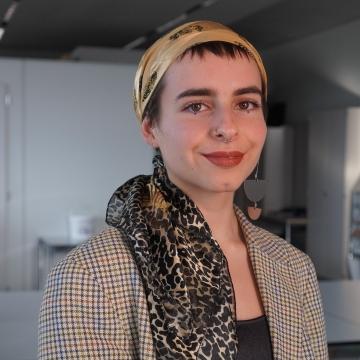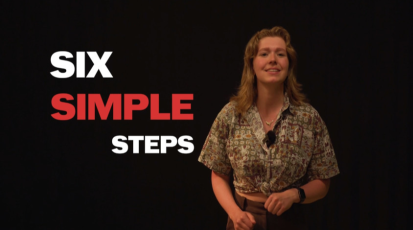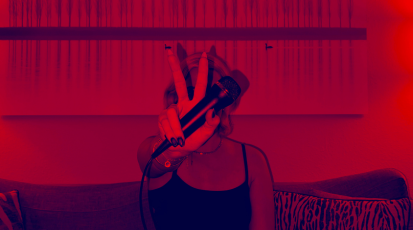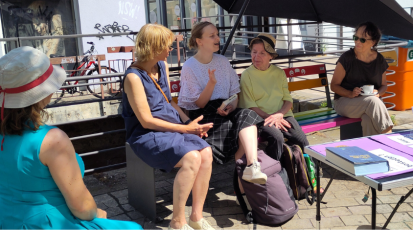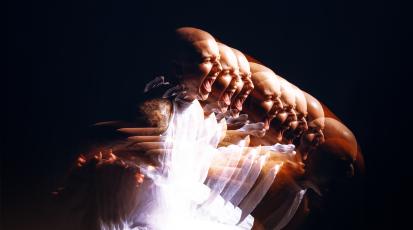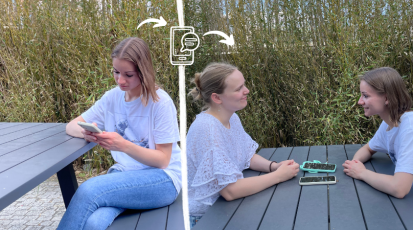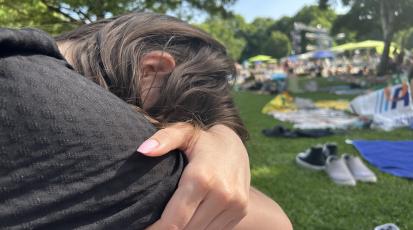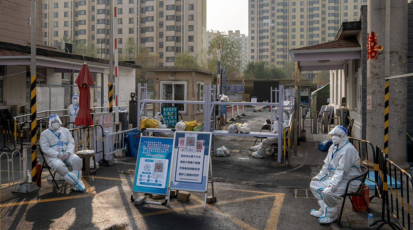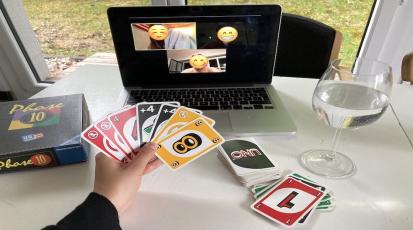"Now I’m like a dog, just waiting for my applications to get approved."
Left Behind: Loneliness in the Shadow of Long Covid
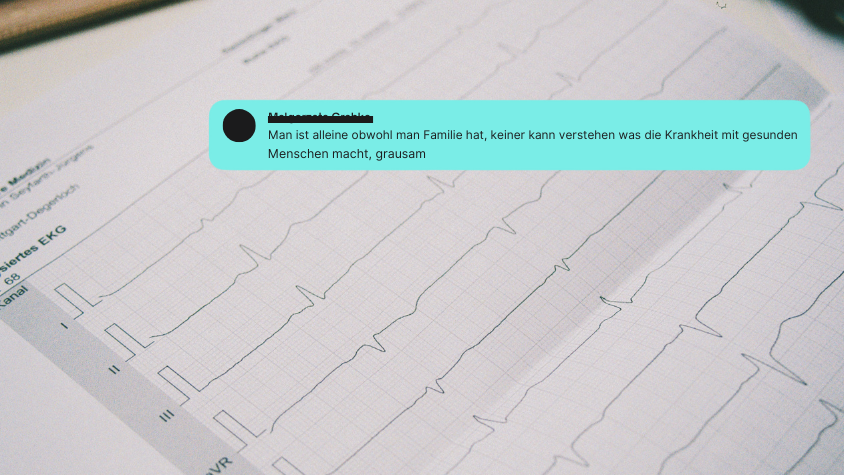
Peggy was never one to stand still. She worked for 27 years, constantly learning and loving her job. Today, she lives alone with her garden. Her friends? Overwhelmed. Her family? At a loss. And Peggy? Unable to work, dependent on medication and most of all: lonely.
Peggy suffers from Long Covid. But Covid is over, right? The masks are in the trash, lockdowns feel like distant memories. The pandemic is politically over, the public discourse has moved on. But while others celebrate, travel, and date, many Long Covid patients never stopped fighting. Not just against exhaustion and pain, but against a world that has forgotten them.
Loneliness That Doesn't Scream
Most people affected tell a similar story: At the beginning, there was empathy. Concerned calls, care packages. But the longer it didn’t get “better,” the more the compassion faded. “You're still sick?” became the new standard. Until even that stopped.
“I couldn’t explain my condition and others stopped wanting to hear about it,” Peggy tells me in the Facebook group “Post-/Long Covid und Vac Syndrom”. Conversations dried up. Invitations stopped. Say no often enough, and eventually no one will ask again.
It’s not about oversensitivity, rather about real limitations: Sensory overload and chronic exhaustion. According to Germany’s Ministry of Health, fatigue is the most common Long Covid symptom, followed by cognitive issues and breathing difficulties.
But psychological symptoms are just as central. A recent meta-analysis showed that about one-third of Long Covid patients suffer from depression, anxiety, or PTSD symptoms. Mental strain is not just a side effect, it's part of the illness.
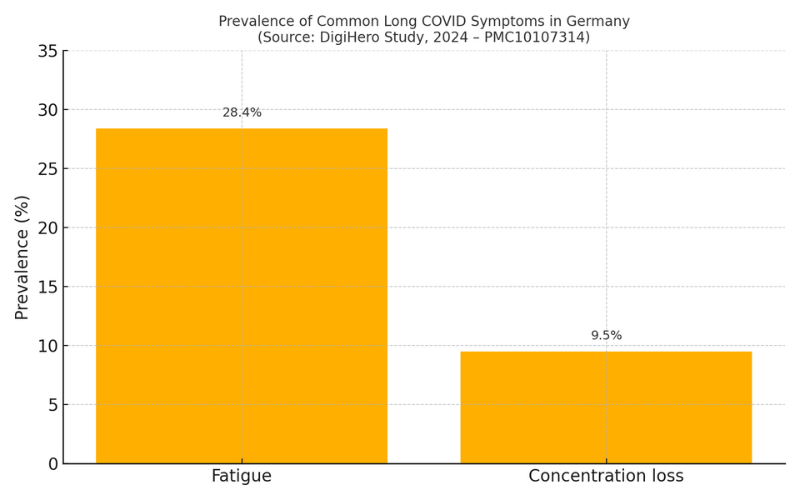
Sabine, a nurse, describes how her life changed after vaccinations and a later infection: she sold her motorbike, stopped going out, has no energy left. During the acute phase, she felt like she was “trapped in a parallel world”, especially because no one believed her. “I was diagnosed with depression, even though I knew it wasn’t that.” Only by chance, supplements, and sheer willpower was she able to return to work - remotely, and under strict limits. Her surroundings don’t see the illness - because they don’t want to and because she learned to hide it. “I can walk for 50 minutes max. Conversations exhaust me. But from the outside, you’d never guess.”
The worst part? The ignorance in the healthcare system. “As a nurse, it was especially bitter to experience how helpless you are once you're the patient. Doctors have no idea and no time.” She needs a specific type of rehab but can’t get approval without an official diagnosis. “Psychological rehab would make me worse, not better.”
Between Couch and Bureaucracy
“I was never unemployed or off work … and now I’m like a dog, just waiting for my applications to get approved,” Peggy writes.
Many are stuck in bureaucratic limbo: disability claims, rejected rehab requests, evaluators dismissing symptoms. Despite Health Minister Lauterbach stating that 6% to 9% of Omicron infections still lead to Long Covid, the care infrastructure is still lacking. Specialized clinics are rare, general practitioners are overloaded, and some don’t even recognize the condition. Sabine is fighting for a neurological assessment to finally access rehab. Her biggest fear: getting dismissed again. “Those eight months where no one believed me left scars.”
Facebook Groups as Digital Life Rafts
What’s left when even close friends don’t believe you? For many: the internet. Groups like “Post-/Long Covid und Vac Syndrom” on Facebook gather thousands who experience what no one wants to talk about.
“I would've given up without this group,” one user writes. Another adds: “It helps to know I'm not crazy. That others feel the same.”
Sabine uses the groups not just for comfort, but concrete help: finding clinics, doctors, hope. “Weirdly, I sometimes feel better because others are doing so much worse. That sounds bad, but it reminds me I’m not alone.”
These aren’t miracle cures. But they’re spaces without judgment. And they make visible what gets ignored in everyday life. According to advocacy groups, over 2.5 million people in Germany could be affected . Still, Long Covid barely makes the news anymore.
Journalist René Martens calls this a “blind spot in reporting”. Editors say audiences are “tired of Covid.” But ignoring something doesn’t make it disappear.
For more stories on loneliness and connection from an international perspective follow this link!
“Live and Let Live” - A Slap in the Face
Many feel even more isolated because of everyday ignorance. One user reports she can’t tolerate loud noise and others shrug it off. “It’s just one garden party,” said a neighbor.
Others hear, “You just need to get moving again,” or “You’re vaccinated, you’re fine.” A 2024 INSA survey showed that 21% of Germans report Long Covid symptoms, among 30 to 39-year-olds, it’s even 40%. Still, many feel unseen, especially when their illness is invisible.
A Quiet Network That Carries
Facebook groups are no cure but they are a place. A place where no one questions why it takes three days to recover from a walk. A place where “just lying down” doesn’t mean you’re lazy.
“This group reminds me that I’m not alone,” writes Anita. It’s a quiet sentence but a powerful one. Maybe the most important in a society that believes the virus disappeared.

